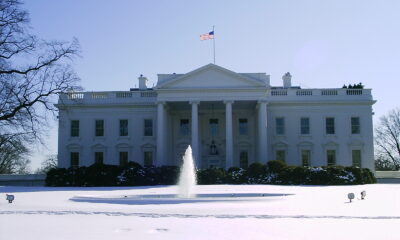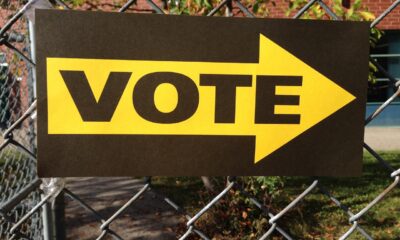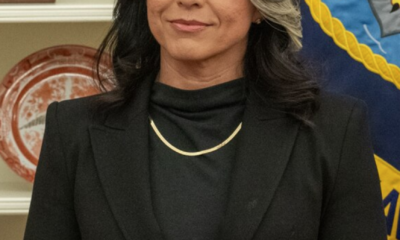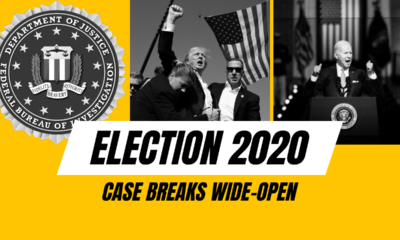Executive
The Dark Side of the Left’s Move to Ban ‘Dark Money’

In the mid-1950s, when Jim Crow laws reigned in Alabama, state attorney general John M. Patterson – later a Ku Klux Klan-supported governor – filed a lawsuit against the National Association for the Advancement of Colored People. The suit alleged that the NAACP was violating a state statute concerning the registration of out-of-state corporations. In reality, the legal action was a thinly veiled attempt to cripple the NAACP by revealing its roster of supporters’ names and addresses to the government and the public.
The beginning of dark money is actually the beginning of donor privacy
Unwilling to expose its supporters to harassment, violence, or worse by the likes of the KKK, the NAACP refused.
The case made it to the U.S. Supreme Court, which, in 1958, ruled unanimously in favor of donor privacy. The court wrote: “Inviolability of privacy in group association may in many circumstances be indispensable to preservation of freedom of association, particularly where a group espouses dissident beliefs.”
Now, Pennsylvania lawmakers want to strip Americans of these constitutional rights and effectively overturn NAACP v. Alabama.
Recently, a state House committee passed a Democrat-sponsored resolution calling on Congress to begin the process of amending the U.S. Constitution to allow states to force groups – which would include the NAACP – to hand over the names of their supporters to the government.
The effort, which drew support even from multiple Republican lawmakers, is being pitched as a move to ban so-called “dark money.” The term refers to money used to advocate for or against causes or candidates by groups not required to disclose their donors. These groups often speak out on controversial issues.
In addition to the NAACP, examples of such groups include Planned Parenthood and the ACLU on the Left, or, on the Right, Americans for Prosperity or my organization, Commonwealth Partners.
Democrats get more than Republicans
(A clarification: Any political action committees associated with these groups must disclose donors on required campaign-finance reports, but the arms of these groups registered as not-for-profit membership or social welfare groups under the tax code face no such requirement. They are, however, required to disclose how much they spend for or against candidates or on issues.)
Ironically, in recent elections, Democrats in Pennsylvania have received far more support from so-called dark money groups than Republicans. Last year, Democratic Supreme Court Justice Dan McCaffery benefited from more than $8 million in spending by groups including the ACLU and Pennsylvanians for Judicial Fairness. The Republican nominee received no similar support.
Pennsylvania lawmakers complain that the Supreme Court has equated election spending with free speech. And they are spinning their effort as an attempt to “ensure … free speech” and “secur[e] … liberty.”
But as we know – and as the Supreme Court confirmed in NAACP v. Alabama – “In the domain of these indispensable liberties, whether of speech, press, or association … abridgment of such rights, even though unintended, may inevitably follow from varied forms of governmental action.”
A threat to freedom of speech
Our unalienable right to free speech was enshrined in the Constitution to protect political expression, preventing politicians from using government power to threaten and harass critics.
The dark truth behind the Left’s attempt to ban dark money is that the ultimate aim is to change the Bill of Rights in order to eliminate the bedrock principle of free speech and monitor Americans’ ideological affiliations.
If such an attack on Americans’ fundamental rights had succeeded in 1958, the names and addresses of the NAACP’s supporters would have been handed over to the KKK under the guise of “transparency.”
If lawmakers succeed today in empowering government and politicians to persecute individuals and organizations because of their giving, the outcome will be no less a threat to democracy.
This article was originally published by RealClearPennsylvania and made available via RealClearWire.
Matthew J. Brouillette is Founder, President & CEO of Commonwealth Partners Chamber of Entrepreneurs, Inc., a membership organization for state and local business and community leaders, philanthropists and successful entrepreneurs, who are dedicated to improving the economic environment and educational opportunities for all Pennsylvanians.
Prior to founding Commonwealth Partners in 2016, Matt served as President & CEO of the Commonwealth Foundation for Public Policy Alternatives for 14 years. Matt joined the Commonwealth Foundation in 2002, previously served as the Director of Education Policy at the Mackinac Center for Public Policy in Michigan from 1998 through 2002, and before his career in public policy, Matt spent seven years teaching history and coaching football and baseball at the high school and middle school levels. Matt also taught history and economics at the university level.
Matt is a board member of the REACH Foundation, a Pennsylvania school choice advocacy organization, and the Joshua Group, a Harrisburg nonprofit ministry serving at-risk youth. He also served on an advisory board for the Economics Department at Duquesne University in Pittsburgh. Matt previously served on an advisory council of the E. G. West Centre for Market Solutions in Education at the University of Newcastle Upon Tyne in England, on an advisory committee for the New York City-based Atlantic Legal Foundation, and as an advisory board member for the American Academy for Liberal Education in Washington, D.C., a national organization dedicated to strengthening and promoting liberal education through accreditation and research.
Matt received his bachelor of arts (B.A.) in both U.S. History and Education from Cornell College and earned a master of education (M.Ed.) from Azusa Pacific University and a master of arts (M.A.) in history from the University of San Diego. He has also completed three years of doctoral (Ph.D.) work in Public Policy and Administration from Walden University. Matt is married and has four children.
-

 Accountability3 days ago
Accountability3 days agoWaste of the Day: Principal Bought Lobster with School Funds
-

 Executive1 day ago
Executive1 day agoHow Relaxed COVID-Era Rules Fueled Minnesota’s Biggest Scam
-

 Civilization9 hours ago
Civilization9 hours agoWhy Europe Shouldn’t Be Upset at Trump’s Venezuelan Actions
-

 Constitution2 days ago
Constitution2 days agoTrump, Canada, and the Constitutional Problem Beneath the Bridge
-

 Civilization1 day ago
Civilization1 day agoThe End of Purple States and Competitive Districts
-

 Christianity Today9 hours ago
Christianity Today9 hours agoSurprising Revival: Gen Z Men & Highly Educated Lead Return to Religion
-

 Civilization5 days ago
Civilization5 days agoThe devil is in the details
-

 Executive21 hours ago
Executive21 hours agoWaste of the Day: Can You Hear Me Now?










